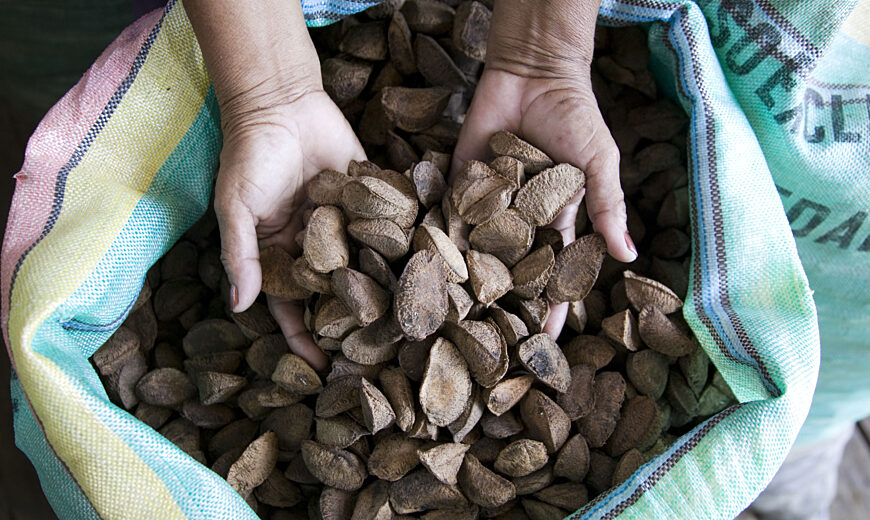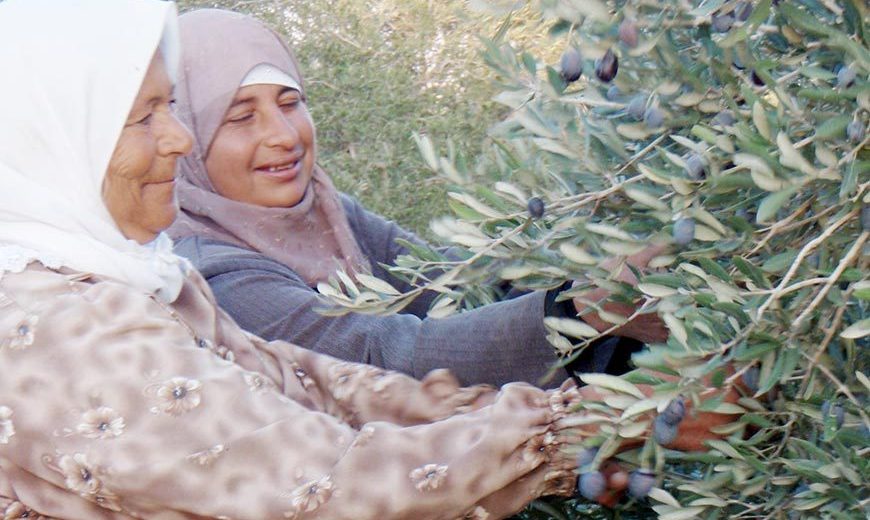Nuts and oils
Eat them whole, or find them in cooking oils and cosmetics. There is a huge variety of Fairtrade nuts, seeds and pitted fruits available.

They range from olives to peanuts, cashews, sesame seeds, and soya beans. Some, like wild-growing shea nuts, are collected by associations of gatherers. Others, like coconuts, can be grown on small-scale farms and plantations.
Choosing Fairtrade nuts and oils makes a difference
Fairtrade works with a great diversity of producer organizations harvesting nuts, oilseeds and oleaginous fruits – small-scale farmers, plantation workers, and some contract workers are all involved in this product category. From Fiji to Nicaragua, and Benin to Pakistan, one commonality is that despite soaring global demand for their products, these farmers and workers too often struggle to make a decent living.
For some producers, remoteness presents logistical challenges. Brazil nuts, for instance, grow naturally in sections of the Amazon rainforest. Gatherers must first collect the fruits as they fall from trees, then extract the seed nuts from the fruit, dry and sort them, and finally transport them in small boats or by foot out of the forest to ports. By offering stable prices and a viable outlet for their product, Fairtrade helps encourage these remote communities to protect their areas from logging and deforestation. By avoiding the switch to monoculture crops like palm oil, this can also help to preserve biodiversity.
For olive growing cooperatives in Palestine, Fairtrade has helped bring some stability in uncertain times, connecting growers with export markets even as Israeli authorities threatened to uproot their trees.
Fairtrade also supports nut and oil producers through access to advance credit and the extra funds from the Fairtrade Premium. Producers have been able to invest in quality improvements and processing facilities that allow them to capture a greater share of the revenues from their harvests.
There are other Fairtrade benefits for producers, too.
For many nut and oil products, there is also a market in by-products. For example, coconuts yield not just the fruit or milk, but also water, husks, and shells – all of which can be sold by producers who receive a Fairtrade Premium on these secondary products, too.
Whether for snacking, cooking or soothing your skin, nuts and oils are unsung heroes of our daily routines. By shopping for Fairtrade nuts and oils, you support a stable and sustainable livelihood for the farmers and workers behind these versatile goods.

Image © Chiraz Skhiri
Looking for Fairtrade Products?
Fairtrade products are widely available. The blue countries and territories on the map below have Fairtrade organizations that promote Fairtrade products. Their websites often include a product finder to show you the full variety of Fairtrade products near you. Even if there isn't a Fairtrade organization where you live, Fairtrade products may still be available – look for our familiar marks on products!